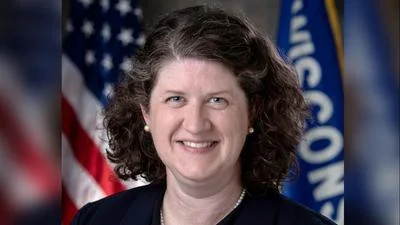Dave Murphy, Wisconsin State Representative for 56th District | Official Website
Dave Murphy, Wisconsin State Representative for 56th District | Official Website
According to the Wisconsin State Legislature's official website, the bill was described as follows: "the duty of a pharmacist to dispense lawfully prescribed drugs and devices. (FE)".
The following is our breakdown, based on the actual bill text, and may include interpretation to clarify its provisions.
In essence, the bill mandates that pharmacies must dispense any lawfully prescribed drug or device without delay, expanding the current requirement beyond just contraceptives. If a pharmacist refuses to dispense a drug for conscience reasons, the pharmacy must transfer the prescription to another pharmacy per the patient's direction, ensuring no delay. Pharmacies are prohibited from dispensing drugs if there is an absolute contraindication, defined as a condition that makes a drug unsafe. Additionally, pharmacy benefit managers cannot penalize pharmacists for dispensing drugs for off-label uses if prescribed validly. These changes are intended to prioritize timely access to prescriptions while accommodating pharmacists' conscience rights.
The bill was co-authored by Senator Rachael Cabral-Guevara (Republican-19th District), Representative Elijah R. Behnke (Republican-6th District), Representative Barbara Dittrich (Republican-99th District), and Representative Daniel Knodl (Republican-24th District). It was sponsored by Senator Steve L. Nass (Republican-11th District).
David Murphy has co-authored or authored another 58 bills since the beginning of the 2025 session, with none of them being enacted.
Murphy graduated from the University of Wisconsin-Fox Valley in 1974.
Murphy, a Republican, was elected to the Wisconsin State Assembly in 2013 to represent the state's 56th Assembly district, replacing previous state representative Michelle Litjens.
In Wisconsin, the legislative process starts when a senator, constituent, group, or agency proposes an idea for a bill. After drafting, the bill is introduced, numbered, and referred to a committee for review and public input. If approved, it moves through three readings and votes in both the Senate and Assembly. Once both chambers pass the same version, the bill goes to the governor, who can sign it, veto it, or let it become law without a signature. Only a small share of bills introduced each session ultimately become law. You can learn more about the Wisconsin legislative process here.
| Bill Number | Date Introduced | Short Description |
|---|---|---|
| AB127 | 03/11/2025 | The duty of a pharmacist to dispense lawfully prescribed drugs and devices. (FE) |
| AB69 | 02/24/2025 | The sales and use tax exemption for electricity and natural gas sold for residential use. (FE) |
| AB58 | 02/24/2025 | Flags flown, hung, or displayed from a flagpole or the exterior of state and local buildings and eliminating a related administrative rule |
| AB55 | 02/24/2025 | Possession of a firearm on school grounds by school employees and fees for licenses to carry a concealed weapon. (FE) |
| AB47 | 02/17/2025 | Tuition and fee remission for certain veterans and their dependents enrolled in the University of Wisconsin System or a technical college. (FE) |
| AB27 | 02/17/2025 | Expanding veterans benefits to individuals who served in Laos in support of the United States during the Vietnam War |






 Alerts Sign-up
Alerts Sign-up